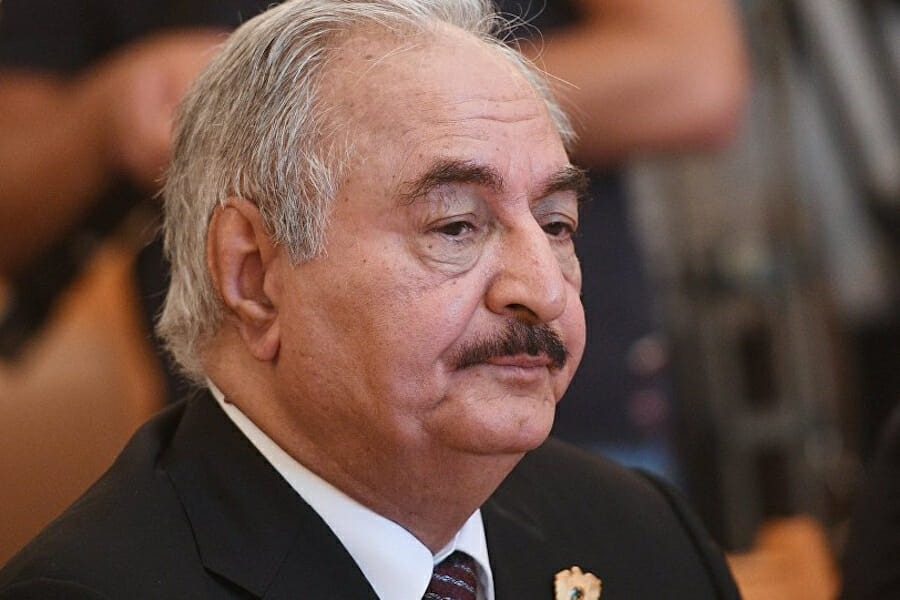
The Great Game for Libya
This summer – like a throwback to the nineteenth century – ‘great powers’ are being kept busy in North Africa; specifically in Libya where there is a concerted geopolitical battle over whether, and how, to hold presidential and parliamentary elections at the end of 2018.
France, Russia, Egypt, the United Arab Emirates and Qatar are all trying to play something of a kingmaker role. The influence of the United States, whose ambassador to Libya paid the ultimate price six years ago, however, is felt almost nowhere. Nor in the likely carve-up of Libya’s great oil wealth that will follow.
Currently, Libya is split between four groups.
The UN-backed Government of National Accord (GNA). Led by Fayez al-Sarraj, and headquartered in Tripoli since 2016, it is the internationally-recognized Libyan government. However, its effective reach barely extends beyond the capital and even that is questionable given recent attacks in Tripoli on the airport and the headquarters of Libya’s national oil company.
Based in Tobruk is the House of Representatives (HoR) established under the 2015 UN plan. The HoR (which includes a Muslim Brotherhood bloc) refused to hold a vote of confidence in al-Sarraj’s government; instead backing a rival administration based in the eastern city of al-Beyda, led by Abdullah al-Thinni.
Khalifa Haftar, Libya’s strongman, is a former Qaddafi-era general who leads the self-styled Libyan National Army (LNA) which controls most of Eastern Libya. The LNA is a strongly anti-Islamist militia and sought to clear Islamist militias out of eastern Libya. Eastern Libya is strategically vital, as it includes much of Libya’s hydrocarbon wealth. Once perhaps best described as the “armed wing of the HoR,” Haftar is now very much operating his own agenda, and even foreign policy.
The Benghazi Defence Brigades (BDB) is a rag-tag coalition of fundamentalist Muslim militias, fiercely opposed to Haftar in the East, and having close links to al Qaeda in the Islamic Maghreb (AQIM).
Libya has the largest proven crude oil reserves in Africa, with 48.4 billion barrels. Usually, hydrocarbon exports provide over 90% of state revenues. The battle for the control of oil resources is at the centre of a conflict pitting the country’s rival factions against one another, with armed militias fighting to gain geographic and political advantage across Libya’s fragmented political landscape.
Rhiannon Smith and Jason Pack writing in Lawfare observe: “For Libyans, the key question is not ‘who should be our president,’ but rather ‘how should our country’s vast resources be used and distributed.’ Yet nothing in this current electoral process allows for such questions to be resolved in a structured way.”
The UN envoy to Libya recently briefed the Security Council that presidential and parliamentary elections in Libya should only be held if conditions are “right,” while it was “unwise to hold elections currently.” However, at least two of the major faction leaders in Syria – and their attendant foreign power backers – are pushing for presidential and parliamentary elections to be held simultaneously on December 10th.
The UN-backed plan has been stalled these last two years, but France’s President Macron has been playing a leading role in trying to keep December elections on-track, also having the backing of Egypt whose President Sisi backs Haftar. In May, Macron hosted a Libya Summit in Paris, inviting leaders of the three largest power blocs. They agreed to secure the constitutional basis for elections by September 16th and hold elections on December 10th. In July this year, Macron sent his foreign minister, Jean-Yves le Drian, on a Libyan tour to bolster the chances of these elections happening.
Such a constitutional framework needs to be endorsed by a majority in a referendum, which seems increasingly hard to imagine will be held in time. However, Haftar and the Muslim Brotherhood – while coming from entirely separate agendas – both seem strongly supportive of elections being held.
However, France’s position is by no means unanimously endorsed by the EU. Italy has been adamant that no outside foreign powers should be endorsing future presidents and backs the long-stalled UN plan to achieve political cohesion in Libya before elections are held. Meanwhile, Italy plans to try and breathe life into the UN-backed plan via an “inclusive” Autumn summit. This provoked a hostile response from Libya, with calls by the HoR’s Foreign Affairs Committee for Italy’s ambassador to be expelled.
By all accounts, Haftar backs elections and has described them as the only way to lead the country out of crisis. He hasn’t ruled out his own candidacy, saying, the priority is to “save Libya and rid it of terrorism.”
Delaying the elections may prove unacceptable locally, not least for Haftar, who controls a large part of the country and recently brought much of Libya’s oil production and shipment to a near stand-still.
Haftar – who is backed by the United Arab Emirates (UAE) to counter Islamist political forces in the country (some of which are backed by Qatar) – has since handed over the oil ports to Libya’s National Oil Corporation, under UAE pressure. The UAE is not only funding political candidates in parliamentary elections friendly to Haftar, but has provided the general with arms from Korea.
France and Egypt also want to see Haftar’s anti-Islamist insurgence strategy succeed; while Egypt is especially keen that elections do not result in a victory for the Muslim Brotherhood (considered to have backing from Qatar). To some extent Libya is proving to be a proxy ‘field of battle’ between the UAE and Qatar, as part of the intense diplomatic dispute between Qatar and the ‘quartet’ of Saudi Arabia, the UAE, Egypt and Bahrain.
To date, Haftar, whose forces control most of Libya’s richest oil fields, has been happy to court Paris as well as Abu Dhabi. However, Haftar has also been keen to bring Russia into Libya’s domestic politics; and gain its military support for cleansing Libya of Islamist militias (as it has been doing in Syria).
Haftar visited Russia last year and the Russians confirm that Haftar offered for them to build a military base Eastern Libya. Russia, however, publicly says it is not backing a political rival in Libya (despite its interests in snatching Libyan oil concessions out from under Western ‘Big Oil’). The competing geopolitics of France, Italy and Russia may not be entirely unconnected with the oil and gas interests and ambitions, respectively, of Total, Eni, and Rosneft.
It is by no means certain that Haftar will be a presidential candidate. Other candidates might include Qaddafi’s son, Saif al-Islam Qaddafi; and there are many Libyans who are wistful of the stability and relative prosperity of the Qaddafi era.
Another outside candidate – or, alternatively, a key kingmaker – is Libyan oil billionaire, Tatanaki Hussein. Tatanaki owns powerful media and charitable foundation assets in Libya that could be key to candidates’ successful election campaigns in December. Tatanaki was certainly close to the Qaddafi family. According to Foreign Agent Registration Act (FARA) documents from the American Department of Justice, Tatanaki helped pay for public relations work to promote Libya and the Qaddafi regime as early as 1992. However, these days Tatanaki is known to be a close supporter of Haftar. Indeed, it is Tatanaki whose links to the UAE were essential for Haftar to get Abu Dhabi support. With his wealth, domestic political connections and deep oil industry expertise, Tatanaki could be a viable candidate, however events closer to home may scupper that ambition.
Tatanaki may be embarrassed, however, by the close personal relationship between his nephew – Mohammad Tatanaki – and London-based socialite, Simrin Bakshi Choudhrie. Originally hailing from the Bakshi family in India (that owns arms manufacturer Continental Defence Solutions, or CODSO), Simrin Bakshi married into the family of controversial alleged Indian arms dealer and UK political donor, Sudhir Choudhrie. Both Simrin’s husband, Bhanu Choudhrie, and father-in-law were questioned in the UK as part of its investigation into the Rolls Royce corruption scandal. However, potentially more embarrassing for Tatanaki, and perhaps fatal to his political ambitions, is that CODSO has close commercial connections to Iran – which backs the Islamists in Libya – Tatanaki’s sworn opponents.
With seemingly so much up for grabs in Libya, the United States has barely made a ripple in trying to influence events in Libya. President Trump has ruled out US involvement in Libya, even as Italy’s then Prime Minister, Paulo Gentiloni, implored the United States to play a bigger role in trying to bring stability to Libya. This refusal comes even as Pentagon officials warned the Senate Armed Services Committee that: “Russia is trying to exert influence on the ultimate decision of who becomes and what entity becomes in charge of the government inside Libya. They’re working to influence that (the decision).”
It is by no means certain that Russia will back Haftar and instead may opt for a broader coalition. For Moscow the prize is access to lucrative, long-term oil and gas deals; massive infrastructure projects; potentially huge arms sales and even the possibility to expand Moscow’s naval reach in the Mediterranean. It may well come to take up Haftar’s offer and, in so doing, lock out Libya for a generation from the influence of the United States. It would, at the same time, potentially complicate the geopolitical position along the EU’s and NATO’s southern flank.

